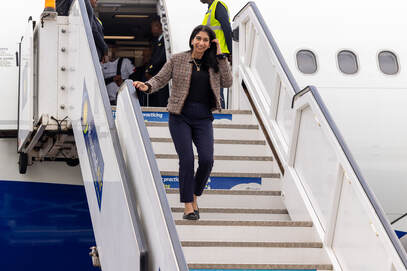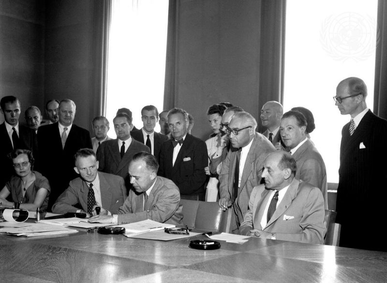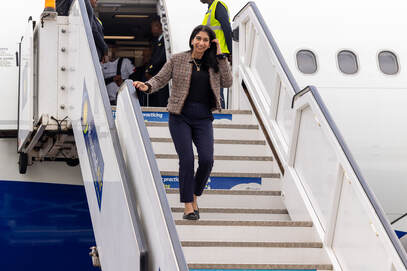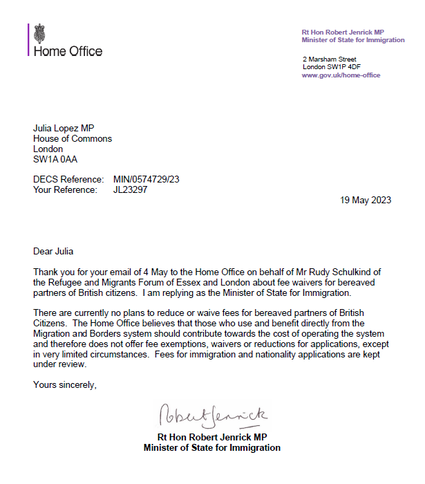
As an immigration advisor on the Rough Sleepers team at RAMFEL, I represent migrants from many different backgrounds and histories who have found themselves rough sleeping due to a lack of immigration status. These are people who are highly vulnerable, as without immigration status, they have no right to work, no right to rent and no safety net to fall back on.
We work on a mix of immigration cases in order to help migrants get back on their feet. Some of the most difficult are applications for permission to stay for migrants who have lived in the UK for over 20 years – with or without immigration status. In order to be granted permission to stay on this route, the government asks for at least one piece of evidence for every year the person has been living in the UK. While that may seem fairly straight-forward for the general population, who are likely to have work records, bank statements and utility bills for instance, this can be extremely difficult for those who have been homeless and living under the radar for many years. Homelessness causes people to move around often, meaning people struggle to keep their belongings and crucial documents with them. Belongings and ID documents are often stolen from people bedded up on the street when they are sleeping. On top of this, those without immigration status often don’t have any records as they have either not accessed services in a deliberate attempt to avoid detection by the authorities – understandably fearful of detention or deportation – or because the government’s “hostile environment” bars them from accessing many basic services. People have told me that they walk around London throughout the night, or sleep on moving buses and trains, in order to stay warm but also to avoid being noticed. This makes it much harder to trace any records of the person living in the UK. It is very common for people who are making these kind of applications to have severe mental and physical health problems brought on by years of homelessness and destitution. I have seen how rough sleeping puts a huge strain on mental and physical health. I have had clients who have spent so long rough sleeping that they have completely lost their memory to the point where they can hardly recall their past at all. Several others have suffered from strokes, which has affected their ability to understand their situation and recall their past, as well as causing physical difficulties. It is virtually impossible to obtain records for people when they cannot remember where they were, what they were doing and even who their partners and family are. Despite these difficulties we have recently had a number of successes at RAMFEL. For instance, I had a client whose case I was worried about, as I could hardly find any evidence at all of his life in the UK. He had been living between people’s homes and on the street, rarely asking for help, so records were non-existent. However, fortunately, I found out that despite never attending any hospital or GP in the UK, he had miraculously been attending a dentist every year since he arrived, so we used these records to make his application. He was recently granted permission to stay. At RAMFEL, we have also been urging the government to consider cases where people are homeless, and have been living in the UK for almost 20 years. This 20-year mark is arbitrary, and there is very little point in making people wait longer to apply when they are destitute, homeless and highly vulnerable and are eventually, without question, going to be granted leave to remain. As a result of years of homelessness, many of our clients have care needs and are provided with accommodation and financial support by their local authority. It is illogical to require local authorities to continue paying out for people with care needs, putting pressure on their limited finances, because the government stubbornly insists on people waiting until the 20-year threshold is met. I have a client who has been living in the UK for 17 years. She has been homeless throughout her time in the UK, living on friend’s sofas or working for families in return for food and somewhere to sleep. In the last few years, her mental health has rapidly deteriorated. She now suffers from psychotic symptoms and cognitive impairment. She is accommodated by her local council, but mental health support is sadly limited as a result of her lack of immigration status. Human rights applications based on health and support needs are rarely granted due to an extremely high threshold, and so it would be unlikely that she would be granted permission to stay on this basis alone. Therefore, we will be making an application on the basis of her 17 years in the UK as well as her health and support needs. If she has to wait until she has been in the UK for 20 years, it is likely that without stability and access to services her mental health will deteriorate further. Although these cases are difficult in terms of gathering evidence and working with extremely vulnerable people, they are some of the most rewarding. This is because after 20 years of homelessness, being granted permission to stay in the UK can completely transform peoples’ lives and provide a clear path away from rough sleeping. Once, when I called a client to tell him that his application was successful, he immediately hung up. He called me later and told me that he had been with some friends at the time, and he was so speechless and overwhelmed by the news he had to immediately put the phone down and walk away from his friends. This conversation has really stayed with me. I am constantly in awe of the resilience of the people we work with. To me, it is unimaginable that someone can live for over 20 years without a safe place to sleep and food to eat. Yet, time and time again, we see these kinds of stories. It is a privilege to work with my clients and to help them on a path to live more stable lives away from rough sleeping.
AUTHOR: Ella Tritton, Immigration Advisor at RAMFEL
9/2/2024 PRESS RELEASE: Government withdraws draft regulations removing HMO regulation from asylum seeker accommodation the day before trialRead Now
Government withdraws draft regulations removing HMO regulation from asylum seeker accommodation the day before trial
A judicial review challenge to the lawfulness of draft HMO (houses in multiple occupation) regulations to remove protection from asylum seeker accommodation was cancelled before it began this week. In the last working hour before the trial was due to start the court and claimants were informed that the Home Office had decided to withdraw the draft regulations. The controversial draft regulations, which had already partly made their way through parliament, would have suspended the fire safety and other standards in HMOs procured by Home Office contractors to house asylum seekers, putting vulnerable people at great risk. The proposal sparked widespread criticism. In May 2023 an open letter coordinated by the Chartered Institute of Housing (CIH), the Refugee and Migrant Forum of Essex and London (RAMFEL) and the Joint Council for the Welfare of Immigrants (JCWI) urged the Home Secretary and Secretary for State to abandon the plans. The letter amassed 137 signatories, including Crisis, Shelter, the Refugee Council and Amnesty International. At the time of issuing the letter, Gavin Smart, chief executive of Chartered Institute of Housings said: “The licensing scheme for houses that are multi-occupied are designed to keep people safe, especially safe from fire. They need to apply to everyone, including people seeking sanctuary in the UK. That’s why we’re calling on the government to drop its proposal to exempt asylum accommodation from the HMO licencing arrangements.” The regulations were not withdrawn by government and continued to make their way through parliament. It then took a group of eight asylum seekers, represented by Duncan Lewis solicitors, to bring forward a legal challenge to the regulations. Chartered Institute of Housing along with eight other leading organisations all put forward evidence in support of the claim. Nick Beales, head of campaigning at RAMFEL (Refugee and Migrant Forum of Essex and London) expanded on the evidence given commenting: “It is worrying that the government states in its explanatory memorandum that part of the rationale for this proposed change is that subcontractors “have raised concerns that regulation is posing a barrier” to acquiring properties. It would appear that subcontractors have directly lobbied the government to introduce a piece of legislation that enables them to provide housing of a lower standard, and thereby increase their profits.” Following the withdrawal of the case, Jeremy Bloom, lead solicitor on the claimants’ legal team from Duncan Lewis, said: “The Claimants have achieved something amazing today: the government’s last-minute withdrawal of Regulations that would have reduced protections for asylum-seekers housed by the Home Office is a spectacular u-turn. The Claimants now have the enduring protection that they will not be placed in accommodation which does not meet licensing standards, which are so vital to fire-safety and to prevent overcrowding.” Mary Atkinson at the Joint Council for the Welfare of Immigrants further added: “We celebrate the fact that this government has bowed to pressure over their obscene proposals, which would have left some of the most marginalised people in our society at risk in unsafe housing. “Everyone deserves a home that is decent and safe – instead of treating people seeking sanctuary as second class citizens, the government must act to quickly and fairly process asylum claims, and make sure local authorities are properly resourced to provide safe housing for all who need it.” 7/2/2024 Here on a visa, yet forced to live in fear: the extension of the hostile environmentRead Now 
“Please can you call me, my work have stopped me from working” – words of panic received in a text from my client. He had been suspended form work without pay, on the premise that his right to work in the UK had expired. He was told that if he could not provide a physical document showing that his leave to remain in the UK had been renewed by a certain date, his employment with the company would be terminated.
What his company failed to realise, was that my client’s right to work had been automatically extended under Section 3C of the Immigration Act 1971 because prior to the expiry of his visa I had assisted him with submitting a valid application to renew his leave to remain. Section 3C states that if a person with leave to remain applies to renew their leave before it expires, and their leave expires without their application having been decided, it will be extended until the Home Office makes a decision. This means that their right to live, work, study, and access benefits in the UK will subsist until a decision is made on their application. This is referred to as “3C leave”. Many companies are unaware of the existence of 3C leave because the government fails to provide documentation that people can present as proof of their immigration status whilst they await a decision on their further leave to remain application. This has potentially cost tens of thousands of people like my client their jobs, homes, mental health, benefits and more. They are left to bear the brunt of the incompetence and negligence of a racist and anti-immigration government, whose policies exclude them under the guise that it is ‘the will of the people’. This is despite the fact that many of them are the parents of British or settled children, or partners of the same. I wrote to my client’s company explaining that he had 3C leave and attaching proof of his valid visa renewal application to the Home Office. He was reinstated, but the impact of the incident remained with him. During his suspension word had erroneously spread to other employees within the company that he was in the UK ‘illegally’ and would no longer be working with them. This caused him distress and debilitating depression and he stopped eating as a result. He could not return to work and had to obtain a sick note from his GP to take time off to recover. Other clients of mine have experienced similar things. One works for a well-known government agency which informed her that her right to work had expired and blocked her ability to book shifts for almost 2 weeks until she brought the situation to my attention. The fact that government agencies are unaware of 3C leave is astounding. Another client was stopped from working a day before her leave expired. Some clients are frantic weeks before their leave is due to expire because they are terrified of losing their jobs. The hostile environment traps those who are here with visas on the “ten-year route to settlement”. They are being forced to live in fear. On 17 July 2023, the Home Office announced that effective September 2023 people with pre-settled status under the EU Settlement Scheme would automatically have their status extended by 2 years before it expires should they not yet have obtained Settled Status. The rationale was said to be so they can continue to contribute to British society without fear of losing their immigration status. Sadly, the parents and partners of British or settled people on the 10-year route have not been afforded the same courtesy. Every 2 and a half years, they must apply to renew their right to be in the UK before their visas expire or risk falling out of status. They must choose between paying inordinate and ever rising application and Immigration Health Surcharge fees or having every inch of their finances inspected by the Home Office in fee waiver applications if they cannot afford the fees. Once their applications for further leave to remain are submitted, they must wait; sometimes up to a year-long period on 3C leave, without any document to prove their status. The devastating impact of this has been brought to the government’s attention times without number, including in a report published by RAMFEL in 2022 with 4 recommendations for change. Yet, these calls to action have fallen on deaf ears. One of my clients described the 10-year route as a battle to which she has lost lots of friends – some due to depression, others because they died. The cost of an exclusionary immigration system is lives. And reflecting on the events of the Windrush Scandal it is clear that history will repeat itself if swift action isn’t taken. This is why RAMFEL is taking the government to court. On 19 and 20 March 2024, the High Court will decide on the lawfulness of the government’s failure to protect those on 3C leave. One can only hope for a favourable ruling that will change the lives of thousands of people like my clients, by ensuring that their rights are protected on 3C leave so they can live in freedom, not fear.
AUTHOR: Joyinola Layonu, Immigration Advisor at RAMFEL
4/2/2024 Press Release: High Court to determine whether the government’s hostile environment is again targeting and trapping the wrong peopleRead Now
Press release: High Court to determine whether the government’s hostile environment is again targeting and trapping the wrong people
The High Court has granted RAMFEL permission to bring our judicial review challenging the government’s mistreatment of hundreds of thousands of people with valid immigration status called “3C leave”. 3C leave is automatically granted to people who are applying to renew and extend visas, and ensures that all existing rights, including the right to work, is protected whilst the application is processed. However, the government does not give people on 3C leave proof of their immigration status. As the government now takes at least a year to process even straightforward visa renewals, a result of them re-allocating significant resources towards clearing the asylum backlog, this means people spend this entire period with no proof of their status, rights and entitlements. A court will now finally consider whether the government’s conduct is unlawful. The government’s hostile environment aims to prevent those who cannot evidence their immigration status from working and accessing basic services, such as opening a bank account. However, as the Windrush scandal showed, those possessing status are frequently targeted too. For years, our clients on 3C leave have been wrongly suspended from work, seen disability benefits wrongly stopped and seen courses of study wrongly jeopardised. Our 2022 report found that 17% of people on 3C leave suffered serious detriment. Based on available figures, nationwide as many as 40,000 people each year could be facing wrongful suspension from work. Our report made 4 recommendations to the government, including just simply providing confirmation of a person’s rights and entitlements whilst on 3C leave. The government though has refused to implement even this modest change, and we therefore were left with no option but to commence legal action. The High Court case will be heard on 19 and 20 March 2024. If the court rules in our favour and finds that the government is failing to protect those on 3C leave, the changes could be seismic, with the government being forced to provide potentially hundreds of thousands of people proper proof of their immigration status, which we hope will drastically decrease the risk of them being trapped by the government’s hostile environment.
RAMFEL’s experts by experience coordinator, Yvonne Atieno, who herself has experienced time on 3C leave:
“Many employers and jobcentre employees do not understand 3C leave and insist on seeing physical visa document. Without physical proof you are left in limbo, basically allowed to stay in the UK but you have no rights. You start getting anxiety every 2.5 years when your visa renewal is approaching. The uncertainty affects families in more ways than one. Innocent children suffer when there is no lifeline for their parents and families can be forced into destitution as a result. It would make such a huge difference if after making your visa application you are given some form of documentation explaining and proving your rights while waiting for the government to process your case.” RAMFEL’s Head of Campaigning, Nick Beales: “The government assured everyone they had learned from the Windrush scandal, but this case shows that those words were hollow and meaningless. They have learned nothing and are more than happy for history to repeat itself. The hostile environment sees people on 3C leave suspended from work and denied other basic services on a grand scale. What’s worse, the government knows this and is not only doing nothing to protect these people, but wasting public money defending its conduct in court. It would be so easy for the government to just provide people on 3C leave proof of their status, but instead they want to ensure all migrants, irrespective of their status, find the UK to be as unwelcoming, hostile and challenging as possible.” With thanks to our excellent legal team, solicitor Janet Farrell of Bhatt Murphy Solicitors, Stephanie Harrison KC of Garden Court Chambers and Shu Shin Luh of Doughty Street Chambers. For further information, please contact RAMFEL’s Head of Campaigning, Nick Beales, at [email protected].  "When I use a word," Humpty Dumpty said, in rather a scornful tone, "it means just what I choose it to mean -- neither more nor less." Chapter 6, Through the Looking Glass by Lewis Carroll The government’s Rwanda Bill is a bizarre and appalling piece of legislation. After the Supreme Court found that Rwanda was not a safe country, the government is seeking to pass a bill that would ban the courts from doing exactly this, forcing the independent judiciary to accept its statement that Rwanda is safe. This effectively removes any constraint or oversight of the government, which would be concerning under any circumstances, but is terrifying when it relates to life and death decisions. Rwanda is in fact a country with an appalling human rights record, with specific instances of appalling treatment of refugees. It does not have a functioning asylum system. The UK’s highest court has made explicit findings on these matters, with the UNHCR in full agreement. The UK government’s assertion that Rwanda is safe is a crude abuse of language, legislation and the constitutional balance of powers in the UK. To think that the Bill received significant opposition from a group of Conservative MPs who thought it didn’t go far enough illustrates the rotten state of the governing party and its approach to migration. The human cost of this is no better evidenced than by the tragic news that a refugee forcibly shoved on the Bibby Stockholm, the government’s legionella-infected floating prison, took their own life. It is remarkable that Sunak is staking his premiership on this exceptionally flimsy and expensive policy that stands such little chance of success, but still strikes fear into refugees in the UK hoping to rebuild their lives. He should instead abandon it alongside the Illegal Migration Act, the Nationality and Borders Act, and all other policies that deny the fundamental right to international protection to those who need it most. 
Suella Braverman’s sacking should of course be welcomed. She was an awful Home Secretary, who combined extreme cruelty with an obsessive determination to generate headlines rather than actual solutions to the UK’s beleaguered and creaking immigration and asylum system.
Whilst other recent occupants of this senior government post have pursued vicious anti-migrant agendas, none appeared to genuinely enjoy inflicting such misery and fear on vulnerable communities as Braverman. This was no better exemplified than her cackling with glee whilst visiting Rwanda in March, giddy at the thought of exiling vulnerable and scared people to a country many of them will have never even heard of. The removal of Braverman though will not even get close to fixing the damage caused during her tenure, and in the years preceding it. The government’s unhealthy fixation on immigration being the cause of all of the UK’s problems ensures that whilst the face may change and, hopefully, some of Braverman’s vicious language will cease, a shift in existing cruel and counter-productive policies is unlikely. Braverman was not hired by accident and her elevation to Home Secretary follows a pattern of more extreme figures receiving the position. She effectively succeeded Priti Patel, herself so viciously anti-migrant that she boasted that had she been in post at the time, her own parents would not have been allowed into the UK. Braverman was described as “Patel on steroids”, so her conduct whilst in post really was not a surprise. James Cleverly has now been confirmed as Braverman’s successor. Though we certainly hope he does not stoke hatred and division in the same way, judging by his video on X this afternoon – predictably stating that refugees arriving by boat, not an NHS on its knees or a cost-of-living crisis, are the biggest crisis facing the country – we should not expect any meaningful divergence. This is no clearer than with the government’s cash for humans Rwanda deal. The Supreme Court will be ruling on the lawfulness of this policy imminently, and if the government is serious about leaving the worst excesses of the Braverman era behind, they should start by scrapping the Rwanda deal. Whatever the Supreme Court decides, and even if they do find that in theory the scheme is legally permissible, it does not change the fact that it is morally reprehensible. From its announcement 19 months ago, the deal has struck fear into asylum seekers and shown the UK at its worst, far from the compassionate and kind country we profess to be. The creation of safe routes for refugees to reach the UK should swiftly follow. Braverman is not the only senior member of government who has repeatedly mischaracterised those taking dangerous journeys as “jumping the queue” when nothing could be further from the truth. The reality is that there is no queue to jump, with basically no options for people fleeing conflict to get to the UK. This April, Braverman shamelessly lied on Sky News that refugees should apply through the UNHCR, which as anyone working in the refugee sector will tell you is not how the process works. The UNHCR selects people for resettlement and then makes recommendations to the UK government. In the year ending March 2023, the UK resettled just 4,414 people, 16,000 fewer than the previous year. The government’s response to overseas conflicts, with the exception of Ukraine, has also been pitiful with no resettlement schemes introduced for those stranded in places such as Sudan. When the Sudanese conflict broke out in April, we were working on behalf of 14 people there hoping to reunite with close family in the UK. These were mainly unaccompanied children who were already refugees from neighbouring Eritrea. All 14 people were living in extremely dangerous conditions, yet all persisted with the labyrinth application process to come to the UK. To date, over 7 months later, only 2 have had their applications processed and managed to safely travel to the UK. In one of these cases, the government even claimed in court that the outbreak of conflict in Sudan was not a change of circumstance that meant the claim needed reconsidering. This lack of safe routes, and peoples’ desire to reunite with loved ones, is what drives dangerous journeys. Time and again we have heard from UK based family members how their relatives in Sudan cannot just sit tight and wait years for the government to consider their application. Faced with extreme danger, people are left with no option but to seek alternative and dangerous routes to safety. Rather than pursuing ever crueller and more punitive measures, the government should introduce schemes that allow those living in conflict zones to safely and swiftly travel to the UK when clear family ties exist here. Public support for the Ukrainian schemes suggests a far more welcoming approach than is often assumed, and, despite the government’s rhetoric, people actually want a welcoming, flexible, and fair migration system. The immigration system as it stands is none of these things, with no options for refugees to travel safely to the UK, people housed in disused army bases and abandoned barges whilst waiting years for a decision on their asylum claim and a government hell-bent on exiling people to Rwanda. Braverman’s removal alone does nothing to change this. If the government seriously wants to improve the UK’s immigration system, it could do so. Braverman’s departure may help tone down the rhetoric, but until sensible, serious and most importantly humane steps are taken to create safe routes and fix the delays inherent in the asylum decision-making process, nothing substantive will change. With public attitudes clearly shifting though, a fairer and kinder asylum system would be good politics and unquestionably save lives.  "UNHCR refugee hut" by MONUSCO is licensed under CC BY-SA 2.0. "UNHCR refugee hut" by MONUSCO is licensed under CC BY-SA 2.0. Melanie, a caseworker in RAMFEL’s refugee and asylum team, has written about her experience reuniting refugee families. The UK government makes the process extremely difficult, leaving young children alone in extremely vulnerable circumstances for many months, creating a risk of exploitation, trafficking, and taking perilous journeys to Europe. “He always expresses that he wants to be with family who loves him and wants him. We feel helpless that we cannot do anything about that when it comes to reuniting with us […] he is in danger because of his mental state. There is civil unrest in Ethiopia, and it is very hard to live there without a family to support you, especially if you are young.” This is the situation of many young people with relatives they are seeking to join in the UK. Contrary to frequent, sensationalised media reports and demonising government statements, the vast majority of those crossing the Channel to come to the UK are later found to meet the stringent criteria for refugee status. 70% of asylum claims in 2023 have been successful, and over 40% of refused claims are later overturned when appealed with the Tribunal. Many of those who travel irregularly to the UK also have family members in the UK they seek to be reunited with. Due to the inaccessibility of safe routes to enter the UK, many individuals, including many young people, face this dilemma: pay smugglers to travel irregularly to the UK via dangerous means, or engage in the prohibitively bureaucratic, delay-ridden UK visa application process—for which many will be ineligible. The types of situations which cause people to seek asylum – persecution, often in circumstances of civil conflict or targeting from violent groups or individuals – often lead refugees to be separated from their closest family members. It is widely acknowledged by the UNHCR and many countries that being able to reunite with close family members is an “essential right” for refugees. Studies have also shown the profound impact this has on refugees, both for their mental health and their ability to integrate, settle into, and begin re-establishing their lives in a new country. While UK family reunion provisions allow refugees to apply for their spouses and children to join them in the UK, the situation is much more difficult for other family members. The nature of conflict and persecution often fractures and separates families, leading many to develop very close bonds with family members other than their children or spouses. These vitally important family relationships, including those between young adults and their parents, or even children and their parents, are not accounted for in UK immigration law. Many of my clients have endured traumatic experiences which affected their family setups. Ahmed, a young refugee from Eritrea, fled indefinite military conscription in his country at a young age to avoid recruitment. His father, who was deployed in the military, was never heard from again. After several years in the UK, he discovered that two of his younger sisters had also fled Eritrea and were in a refugee camp in Ethiopia. Several months later, he discovered that one of his sisters had been captured by Eritrean military and forcibly returned to Eritrea, where she was imprisoned at the age of 15 for fleeing the country. His younger sister, Sagal, managed to escape to Addis Ababa, where she lived with other young people in a similar situation. We assisted Ahmed with applying for Sagal, who was then aged 15, to join him in the UK. During the application process, their mother passed away, making Ahmed the only living family member his younger sister was in touch with. Sagal had no future prospects in Ethiopia, where she had no immigration status, no adults to care for her, and no support of any kind to pay for food or accommodation, aside from the money her brother sent her. For her application to succeed, Sagal had to show ‘exceptional circumstances’ – an extremely high threshold which, even when met, the Home Office systematically refuses to acknowledge. In this instance, an independent social worker noted with shock that Sagal was “at imminent risk of significant harm“ and concluded that “I have never assessed a child to be at as at great risk of harm as [Sagal]”; despite this, after 11 months of waiting for a decision, the Home Office refused to give Sagal a visa. At the appeal hearing challenging this decision, the judge noted that there had been ‘a total failure by [the Home Office] to carry out fair or timely decision making for refugee family reunion or to consider the evidence’. Appeal processes are lengthy and protracted and whilst waiting for her day in court, the young people Sagal was living with fled, leaving her completely alone as a child in a foreign country. Ahmed was so worried about his sister that he went to Ethiopia to care for her, despite his limited financial means, and sacrificing his own studies in the process. At the hearing, the immigration Judge expressed alarm at GD’s situation, remarking that she was in ‘the most dangerous of circumstances and found to be at risk of imminent harm’, having been described by social workers as a ‘terrified child’. In her decision, the judge raised ‘the urgency of allowing this particular child entry to the UK without further delay’, and allowed the appeal on the same day. This may sound like a happy ending, but we started working on Sagal’s visa application at the beginning of 2021 and she did not arrive in the UK until May 2023. It should not take this long to reunite a vulnerable child, living in grave danger, with their family in the UK. These cases are illustrative of the dire circumstances faced by many young people separated from their family members in the UK. Many remain trapped in their country of origin, or in third countries, unable to obtain a visa to reach a place of safety, and unable to stay where they are due to precarious and often dangerous circumstances. Left with these options, many take matters into their own hands and undertake extremely dangerous journeys across the Sahara, risking kidnapping or imprisonment by smugglers; crossing the Mediterranean in unseaworthy vessels; to reach European countries where they face street homelessness, racial abuse, or imprisonment in inhumane conditions. Many of my clients’ family members describe having nothing to lose. As one client put it, he has no life where he is, so why would he not risk his life in trying to be with his family somewhere safer? The government frequently cites UNHCR resettlement schemes as an alternative option for individuals in Sagal and Ahmed’s circumstances. This is disingenuous, as individuals must be selected for resettlement by the UNHCR; there is no application process. These schemes also apply only to individuals who are already displaced outside of their home country, and who are able to register with the UNHCR. The criteria for resettlement are opaque, and the Home Office ultimately decides the types and the number of individuals who will be permitted to resettle in the UK. Very few people qualify; in 2022, only 1,185 people were resettled in the UK; and less than 1% of the refugee population in the world is resettled. Most importantly, when choosing who to resettle in the UK, the UNHCR prioritizes the most vulnerable individuals, not their family ties to the UK, leaving many refugees in third countries stranded despite having clear family connections here. Abdi, who was separated from his mother at a young age after she fled Somalia, was so desperate to be reunited with his only surviving family members (his brothers in the UK, Abshir and Mohammed) that he considered taking a dangerous journey across the Mediterranean. The dangers of this journey are evident: in 2023, the UNHCR estimated 2,539 individuals had gone missing or died attempting to come to Europe. After Abshir’s mother died in 2015 leaving him alone in a foreign country with no one to care for him, his eldest brother Mohammed applied for him to come to the UK. When his visa application was refused twice, Abshir travelled to Europe irregularly. Abdi now found himself in the same situation as his older Abshir brother had; as his eldest brother said, ‘If someone’s family is abroad, they will do as much as they can to join them, they will try to cross regardless of the consequences, as he feels that he has ‘no future there at all’. Abshir repeatedly urged his younger brother against travelling irregularly, warning him about his own traumatic journey in which he witnessed friends dying, and experienced a traumatic period of imprisonment with adults in desperate, dire circumstances. Abshir and Mohammed wanted nothing more than to protect Abdi from having to experience the horrors which continue to haunt Abshir, a bright young man who has since managed to settle into his life in the UK and aims to work in the medical profession. In Abshir’s words, “The only hope he has is to come and be reunited with us. If not, the only route he has to go down is the one that I did, the smuggler’s route.” Abshir’s patience and willingness to engage in the lengthy and invasive visa application process eventually paid off for his brother, but only after nearly 3 years of work and suffering for the family. After months of preparing copious evidence, Abdi’s application was submitted in January 2022, only to be refused over a year later. The UNHCR, who assessed Abdi and his brothers, warned that he was at risk of embarking on a dangerous journey to reach Europe; this was reiterated by Abdi’s two brothers in the UK, and by Abdi himself. The Home Office, however, refused his application partly on the basis that it was merely ‘speculation’ that Abdi might take this dangerous journey. When the case went to a hearing at the Immigration Tribunal, however, the judge noted that: I find that if this appeal was refused, the Appellant would undertake the dangerous and illegal journey to the UK. The result of all of this would lead to unjustifiably harsh consequences for the Appellant if he was refused entry clearance. The immensity of the risk, and the difficulty of the choices facing individuals in this situation cannot be overstated. In this case, the UNCHR noted that remaining in Ethiopia would put Abdi ‘at risk of exploitation and abuse’. The UNHCR acknowledges the appalling situation of refugee camps in Ethiopia, citing risks of starvation or malnutrition, and explaining that ‘the situation of children without any support is dire’, with many forced into labour in order to feed themselves. These grim realities were blithely ignored by the Home Office in their assessment that it was reasonable to refuse JD’s visa application to join his brother, demonstrating a deference to UNHCR only when it suits the UK government. The government repeatedly urges individuals to take so-called ‘safe and legal routes’ to the UK rather than embarking on dangerous journeys. Yet the reality for those who require visas to enter the UK is that the process is so complex, restrictive, and lengthy that either they cannot navigate the application process; they are not eligible for any visas; or they cannot wait years for the outcome of an application while they remain in immediate danger. Our clients who were able to benefit from free legal representation to make these applications are the exceptions which prove the rule: that it is incredibly difficult, if not virtually impossible, for many to enter the UK on a visa, even to join family members here who are ready to support them. This is due to very strict, narrow definitions of family members in the Immigration Rules; bureaucratic and legal complexities; as well as long delays and poor quality decision-making by the Home Office, as evidenced by the large number of negative decisions which are overturned by judges. There has never been a greater need for effective safe routes to the UK which are genuinely accessible and which would enable families to be reunited without a long, traumatic wait. The government, in passing their latest cruel anti-refugee legislation, promised further routes would be introduced. Months later though, nothing has changed and more and more people, including teenagers such as our clients, are left with no option but to embark on dangerous journeys as they seek safety and reunification with their loved ones. 
Suella Braverman’s speech this week was the latest of a series of cruel and inhumane attacks on people who are forced to move in order to seek safety. In a bizarre and hateful speech, the Home Secretary made a number of wild denouncements of the Refugee Convention, in a transparent and cynical attempt to use the crisis faced by refugees to grab headlines.
Braverman spoke about the need to rewrite the Refugee Convention, evidenced by a number of lies about how the international and domestic refugee systems actually work. Braverman told her audience that the threshold for receiving protection has shifted from ‘persecution’ to ‘discrimination’ and that a ‘well-founded fear’ has shifted ‘toward a ‘credible’ or ‘plausible” fear’. Anybody who works in the asylum system, including Home Office Presenting Officers, government lawyers, judges, asylum seekers and legal representatives, will unanimously tell you this is not true. Asylum applications and appeals are complex matters requiring individuals to demonstrate that they meet a high threshold, often presenting expert evidence of the particular risks that pertain to their individual circumstances. Braverman’s fictitious claims recall Theresa May’s false stories about a man who fought deportation on the basis of his relationship with his cat. She reserved a particular attack for those who claim asylum on the basis of sexuality or gender. She decried ‘we will not be able to sustain an asylum system if in effect, simply being gay, or a woman, and fearful of discrimination in your country of origin, is sufficient to qualify for protection.’ Put another way: if our asylum system were entirely different from how it is in reality, it would not be sustainable. Anyone who works in this area will tell you that the imaginary asylum system the Home Secretary is describing bears no similarity to our own, and LGBTQI+ people must not only convince sceptical government decision-makers of their sexuality but also evidence that they face a well-founded fear of persecution to qualify for refugee protection in the UK. In 2022, only 1.5% of asylum claims relied upon sexual orientation as part of the basis for the claim, with the top three represented countries being places where homosexuality is punishable by life imprisonment or death. The Home Secretary did not care to recall that many of the states that criminalise homosexuality began doing so under British colonial rule. These laws are a relic of empire and the UK has a responsibility to protect those they punish. There are plenty of relevant facts that the Home Secretary could have drawn attention to – such as the fact that under her tenure as Home Secretary, the asylum backlog has reached record levels, with more people than ever being made to wait in agonising limbo for years. Or that the UK, Europe and USA take responsibility for a small proportion of refugees, with 70% of those displaced across borders remaining in a neighbouring and inevitably far poorer country. If the Home Secretary wanted to fix the problems in the asylum system and reduce financial pressures, her focus would be on processing claims, granting people leave to remain and allowing them to work whilst waiting for decisions on their claims. For somebody claiming to be broaching ‘taboo’ issues and bringing fresh political ideas, it was surprising to see the Home Secretary repeat a succession of far-right dog whistles and conspiracy theories that we have heard many times. There was the fear-mongering about communities who live ‘parallel lives’, the ugly reference about the birth-rate of ‘foreign-born mothers’ in the UK, and a sinister warning that cultural change is ‘diluting’ what was there before (in ‘Western’ countries), until ‘eventually it will disappear’ – with more than a shade of the ethno-nationalist ‘great replacement theory’. Throw in a ‘notional’ massive number (Braverman appears to have decided that precisely 10% of the world are refugees) and this was a speech straight from the fascist playbook. It is no surprise that its only supporters appeared to come from a fringe far-right extremist party that campaigns against multiculturalism. This type of hatred will not win. She has been attacked from all angles, including by her own party. Braverman should take note of the fact that attitudes towards immigration have become considerably more positive in recent years, and there is no appetite for this type of politics. We will continue to defend the fundamental right to claim asylum. In May, we joined 175 organisations warning the government that their so-called ‘Illegal Migration Bill’ amounted to an effective ban on asylum. As we argued then, we all deserve to live safe from harm, and to be treated with compassion, dignity and respect. We urge politicians to reject the Home Secretary’s divisive approach and defend the Refugee Convention, a vital pillar of our universal human rights and as relevant today as it was when created in the aftermath of the second World War.

This statement was prepared by RAMFEL’s Experts by Experience group, established in September 2022 to influence our campaign work and serve as a solidarity group. The group is currently made up of 35 members, people who themselves are on the 10-year route to settlement. The group meet regularly to discuss and identify key areas of focus, develop RAMFEL’s the strategic direction of the group, and undertake training.
Those who would like to support the group’s campaigning work can do so via this link. Group statement: We are a group of people who are on the 10-year route to settlement in the UK. We are worried about the impact that the government’s planned rise in visa fees and the immigration health surcharge will have on us, our families and our children. The increase in visa fees is unfair and should be condemned. It will really affect a lot of migrants and it is not fair on all of us that have already been in this country for more than 10 years. It is also insensitive and too much to bear with the increases in the cost of living and other economic problems in the country. It is an act of cruelty towards us migrants. We cannot afford even the current visa fees, which for a single person, is already £2,608 every 2.5 years. This is simply too high. Many among us have families – one member of our group has a family of 6 for and it already costs £15,648 to renew their visas, but this would go up to £23,070 with the increase. This is ridiculous. On top of this, there are legal fees. We are all worried that we are not going to be able to renew our visas, because we do not earn enough and we do not have enough savings. The government should consider people like us who do not have much money but are working every day to support our families. There are so many other problems with the 10-year route to settlement and it is really difficult. The entire process is tough, and current waiting times for renewals are long because of government delays. This creates a huge headache, and your employer might suspend you without pay while waiting for the decision from the Home Office. This is something you go through every 30 months, so you can never have job security. And on top of that, they want the fees again, each time. Some of us are still paying back loans of thousands of pounds that we needed to pay for immigration applications and registering our children as British citizens. It means we can’t pay our bills, we can never take our children on holiday, we can’t buy our children the clothing they need. The government is using migrants as political excuses. One minute they do not want us here in the country, next we are useful when they want to use us to pay for the public sector pay increase. The impact of the new visa fees will be families driven to impoverishment, increased stress levels and mental health problems, finding the money becomes an obsession. And on top of this, the cost of living crisis. There is also the constant worry of becoming an overstayer because you cannot afford the fees. Many of us are health workers, and it is particularly unjust that we are made to pay the government’s health surcharge when we are already contributing to the NHS. The government is just robbing Peter to pay Paul, without recognising the positive impact that migrants bring. Most people on the 10-year-route, for instance, work very hard and pay tax, and often still have to work a second job to pay their bills. Migrants with no recourse to public funds worked really hard during Covid, and even though we were scared to leave our homes we did not have a choice. We were on the front lines in large numbers, and those of us that are carers did not get the bonus that NHS staff received. Now visa fees are being increased again, and the same people are being exploited yet again. The government should reverse this outrageous proposal. At the same time it should reduce the number of times that people have to renew their visas, so that people have more time to save up the thousands of pounds that are needed. Finally, we urge the government to reduce the 10 year route to 5 years, to reduce the burden on us and our families. You may have seen in the daily mirror, refer to our client's letter to Robert Jenrick. This and his letter are copied below. www.mirror.co.uk/news/politics/grieving-widows-heartbroken-cruel-tories-30841443  Dear Mr Jenrick, We wanted to share with you our experiences of the UK’s immigration system, having been married to British citizens who have sadly passed away. We know your government has a concession for people in our position that will allow us to stay in the UK, but that if we cannot pay nearly £2,500 we cannot access this concession. You have said this fee exists, cannot be waived and is so high because we are ‘benefitting’ from the immigration system. We are asking for you to consider our situation and introduce a fee waiver for this concession as otherwise we will never be able to afford it. We have all made the UK our home, have worked, paid taxes and paid visa application fees. We have paid into the system and it is not our fault that our husbands have passed away and we now face an uncertain future. Widows and widowers are not just numbers or statistics but individuals who have experienced profound loss and are seeking a lifeline to help us move forward. Applying for a fee waiver when we cannot afford thousands of pounds is not about evading responsibility or seeking preferential treatment; it is a plea for compassion and recognition of the extraordinary circumstance that we find ourselves in. We do not feel we are benefitting from anything and it is unfair of you to say this. Grieving the loss of a loved one is an emotionally challenging experience that requires time and support. The financial burden of immigration fees and the fear of not knowing if we can stay in the UK exacerbates the emotional distress we are already experiencing. We all have children and they have been through enough already but the added pressure we feel is making things even harder for them. They should not be made to feel like they are foreigners in their own country. It is not realistic to think that we can raise such large sums of money to pay for the application when we are dealing with our loss and raising children single handed. There is no way that we will be able to generate enough money in order to pay you £2,500. Applying for a fee waiver after the death of our husbands is not just a formality, it represents a lifeline that can alleviate the burden we carry. We want you to please just think about our situation. We feel totally stuck and worried about having to put aside money each month when we are struggling to even feed our children. We feel that it is important that you understand the reality of our situation and hope you will consider introducing a fee waiver so that we can secure our future in the UK. By doing so, you would be offering a helping hand to bereaved widows who are striving to rebuild their lives. We would love the chance to meet with you so that you can better understand this issue is having on us. Yours sincerely, Three bereaved partners unable to afford the Home Office’s application fees |
Details
Archives
July 2024
Categories |




 RSS Feed
RSS Feed
